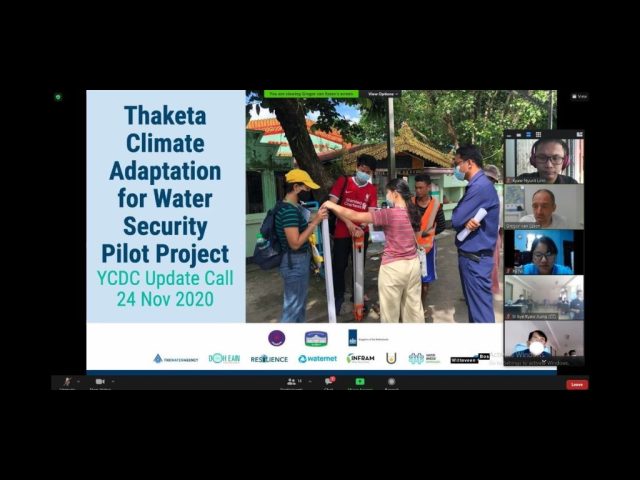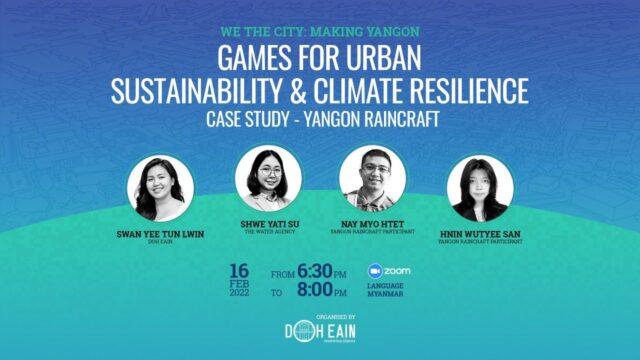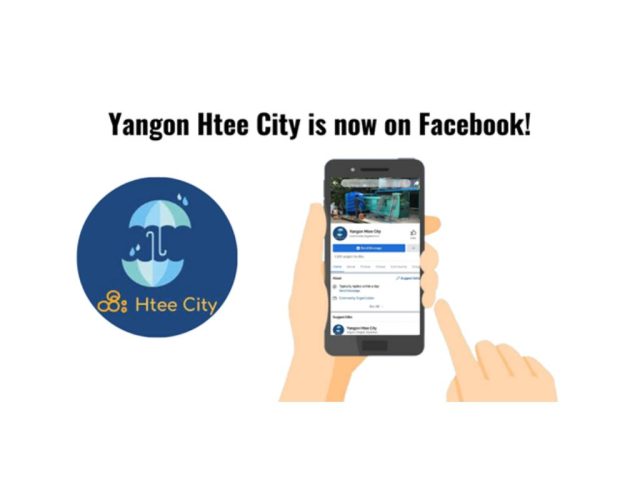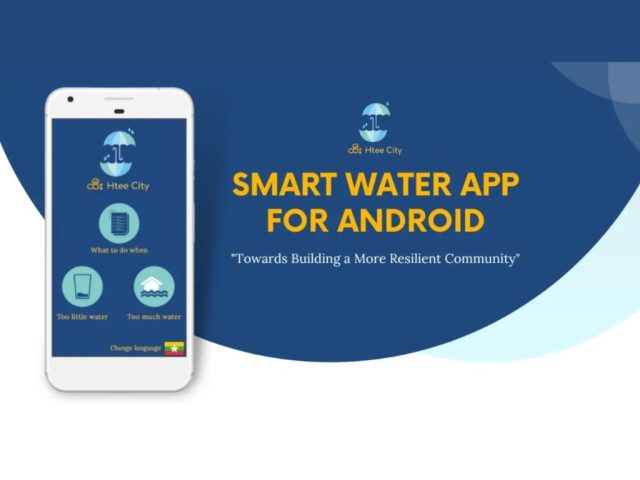On November 24, 2020, update call of Thaketa Climate Adaptation for Water Security Pilot Project was done with local government, Yangon City Development Committee by organizing the virtual online meeting amid COVID pandemic.
The call was to share a project update about its progress of implementation and monitoring and discuss how to collaborate moving forward.
As pandemic was serious in Yangon, the project team adjusted community engagement approach and managed to complete most of the Phase 1 activities as planned. In phase 1, the community engagement team could build trust with the Thaketa Ward 5 community to obtain more local knowledge and support the vulnerable areas. The implementation team performed installing rainwater harvesting tanks in 5 different places and provided financial and technical support on improved design of 235 feet of back-alley drains.
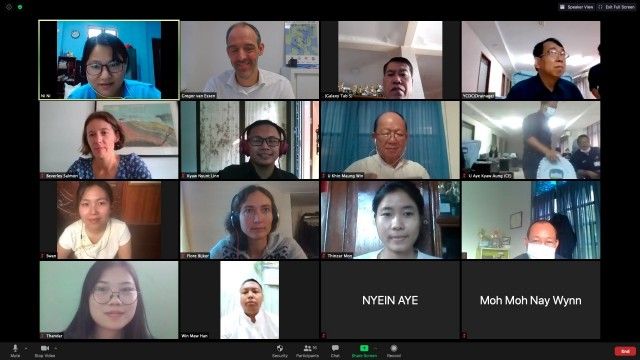
To promote public awareness and education on climate change, the communication team initiated the Facebook page called Yangon Htee City. For connecting with the local community virtually, “Thaketa Ward 5” Facebook group was launched to share urgent flood situations and updated project activities what have been operating in the neighbourhood.
As a monitoring and measuring procedure, a weather station was installed, water quality testing from the rainwater harvesting tanks was made and equipping CCTV to monitor the water level was placed at the water outlets.
Embracing the global crisis, the project team will continue the planned activities with respect to COVID limitations on the ground. They have escalated their approach to digital platforms and alternative means of engagement.
To envision a water resilient community to the next level, the project team are creating a Minecraft model of the Ward in collaboration with UN-Habitat. Minecraft is a computer game which simulates a place and allows it to be easily manipulated. The computer simulation will be used with the community and stakeholders to test, play and discuss opportunities and alterations that they would like to see in their neighbourhood. In a nutshell, it is to ensure that all voices are given the opportunity to be heard.
As to ensure the network approach, University of Yangon will be collaborated as a knowledge institute to create a living lab, using this project as a unique and exciting environment for teachers and students.

